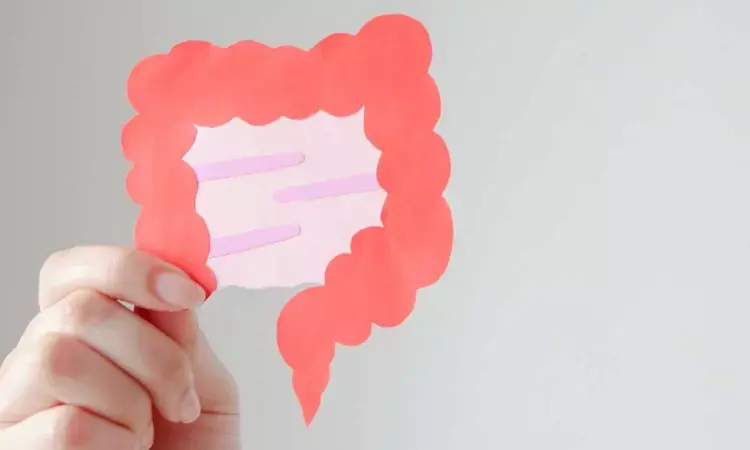- Home
- Medical news & Guidelines
- Anesthesiology
- Cardiology and CTVS
- Critical Care
- Dentistry
- Dermatology
- Diabetes and Endocrinology
- ENT
- Gastroenterology
- Medicine
- Nephrology
- Neurology
- Obstretics-Gynaecology
- Oncology
- Ophthalmology
- Orthopaedics
- Pediatrics-Neonatology
- Psychiatry
- Pulmonology
- Radiology
- Surgery
- Urology
- Laboratory Medicine
- Diet
- Nursing
- Paramedical
- Physiotherapy
- Health news
- Fact Check
- Bone Health Fact Check
- Brain Health Fact Check
- Cancer Related Fact Check
- Child Care Fact Check
- Dental and oral health fact check
- Diabetes and metabolic health fact check
- Diet and Nutrition Fact Check
- Eye and ENT Care Fact Check
- Fitness fact check
- Gut health fact check
- Heart health fact check
- Kidney health fact check
- Medical education fact check
- Men's health fact check
- Respiratory fact check
- Skin and hair care fact check
- Vaccine and Immunization fact check
- Women's health fact check
- AYUSH
- State News
- Andaman and Nicobar Islands
- Andhra Pradesh
- Arunachal Pradesh
- Assam
- Bihar
- Chandigarh
- Chattisgarh
- Dadra and Nagar Haveli
- Daman and Diu
- Delhi
- Goa
- Gujarat
- Haryana
- Himachal Pradesh
- Jammu & Kashmir
- Jharkhand
- Karnataka
- Kerala
- Ladakh
- Lakshadweep
- Madhya Pradesh
- Maharashtra
- Manipur
- Meghalaya
- Mizoram
- Nagaland
- Odisha
- Puducherry
- Punjab
- Rajasthan
- Sikkim
- Tamil Nadu
- Telangana
- Tripura
- Uttar Pradesh
- Uttrakhand
- West Bengal
- Medical Education
- Industry
FDA approves first treatment for pediatric functional constipation

The US food and drug administration has approved linaclotide (Linzess)capsules for the treatment of functional constipation among kids 6 years and above. Linzess is the first treatment for pediatric functional constipation. The recommended dosage in pediatric patients 6 to 17 years is 72 mcg orally once daily.
Disease or Condition
Functional constipation is a common condition experienced by children and adolescents in which patients have infrequent bowel movements with hard stools that can be difficult or painful to pass. There is no known underlying organic cause and there are typically multiple contributing factors.
Efficacy
The efficacy of Linzess for the treatment of functional constipation in pediatric patients 6 to 17 years of age was established in a 12-week double-blind, placebo-controlled, randomized, multicenter clinical trial (Trial 7; NCT04026113) and supported by efficacy data from adequate and well-controlled trials in adults with chronic idiopathic constipation (constipation that persists and isn’t connected to an underlying illness).
For enrollment in the pediatric clinical trial, Rome III diagnostic criteria for functional constipation were modified to require that patients have less than three spontaneous bowel movements (SBMs) per week (defined as a BM that occurred in the absence of laxative, enema, or suppository use on the calendar day of or before the BM) and one or more of the following criteria at least once per week for at least two months before the screening visit:
• History of stool withholding or excessive voluntary stool retention
• History of painful or hard bowel movements (BMs)
• History of large diameter stools that may obstruct the toilet
• Presence of a large fecal mass in the rectum
• At least one episode of fecal incontinence per week
The primary efficacy endpoint was a 12-week change from baseline in SBM frequency rate. Patients who received Linzess experienced a greater improvement in the average number of SBMs per week than patients who received placebo. SBM frequency improved during week one and was maintained throughout the remainder of the 12-week treatment period.
Safety
The most common adverse reaction reported in pediatric patients 6 to 17 years of age with functional constipation is diarrhea. If severe diarrhea occurs, patients should stop receiving Linzess and be rehydrated. Linzess contains a boxed warning that the medication should not be taken by patients less than 2 years of age. In neonatal mice, linaclotide caused deaths due to dehydration. Patients with known or suspected mechanical gastrointestinal obstruction (bowel blockage) should not take Linzess. See full prescribing information for additional information on risks associated with Linzess.
Dr Kamal Kant Kohli-MBBS, DTCD- a chest specialist with more than 30 years of practice and a flair for writing clinical articles, Dr Kamal Kant Kohli joined Medical Dialogues as a Chief Editor of Medical News. Besides writing articles, as an editor, he proofreads and verifies all the medical content published on Medical Dialogues including those coming from journals, studies,medical conferences,guidelines etc. Email: drkohli@medicaldialogues.in. Contact no. 011-43720751


